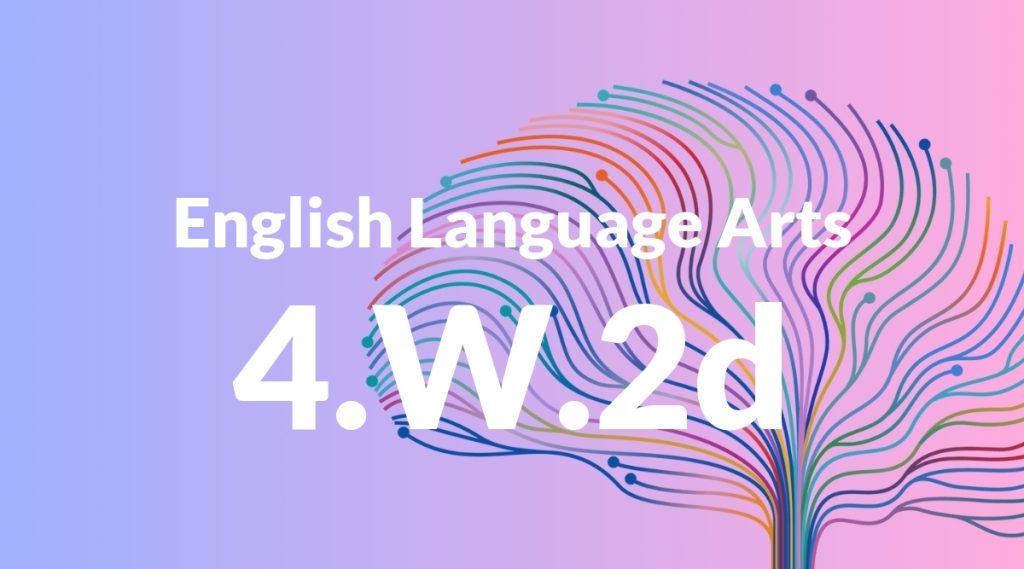Standard: 4.W.2d – Use precise language and domain-specific vocabulary to inform about or explain the topic.
Grade level: Grade 4
Subject: English Language Arts
Domain: Writing
Teacher Overview
This standard emphasizes the importance of using precise language and domain-specific vocabulary in writing. It is crucial for students to learn how to communicate their ideas clearly and accurately, which will serve them well in all academic subjects and in real-world situations. Students should be comfortable with basic writing skills, including sentence structure, grammar, and general vocabulary. They should also understand the purpose of writing and be able to identify their audience.
Students will be able to write detailed and accurate texts across various subjects, using appropriate vocabulary. This skill will help them in higher-level writing tasks and in understanding complex texts.
Common Misconception 1
Some students may think that using more complex words automatically improves their writing. This is incorrect because the primary goal is to communicate clearly and effectively. Overly complex words can confuse the reader and obscure the main message.
Intervention 1
Provide students with examples of effective writing that uses simple, precise language. Conduct activities where students compare sentences with complex vs. simple language to see which is clearer.
Common Misconception 2
Another common misconception is that domain-specific vocabulary is only relevant for technical subjects like science or math. In reality, every subject has its own set of specific terms that are important for clear communication.
Intervention 2
Introduce domain-specific vocabulary in a variety of subjects. Use cross-curricular projects to show how precise language is used in different contexts.
Prerequisite Knowledge
Students should have a basic understanding of sentence structure, grammar, and general vocabulary. They should also be familiar with the concept of writing for different purposes and audiences.
Subsequent Knowledge
After mastering this standard, students will be able to write more sophisticated and detailed texts in various subjects, using appropriate and precise vocabulary. They will also develop skills in editing and revising their work for clarity and accuracy.
Instructional Activities
- Vocabulary matching games with domain-specific terms
- Writing prompts that require the use of precise language
- Peer review sessions focusing on clarity and vocabulary use
- Creating glossaries for different subjects
- Group projects that involve writing and presenting on a specific topic




